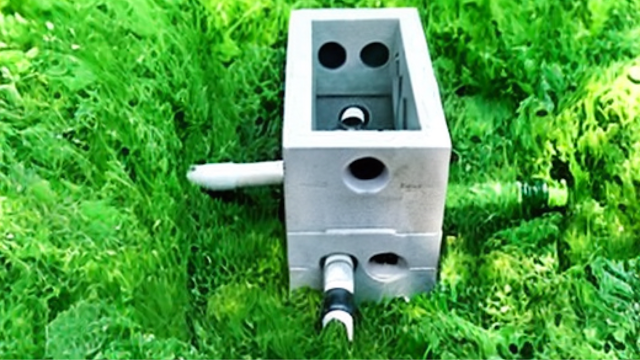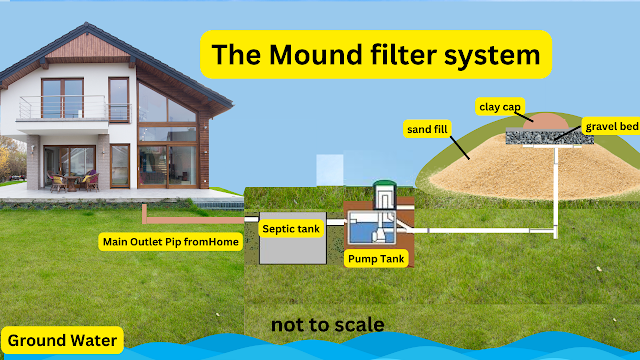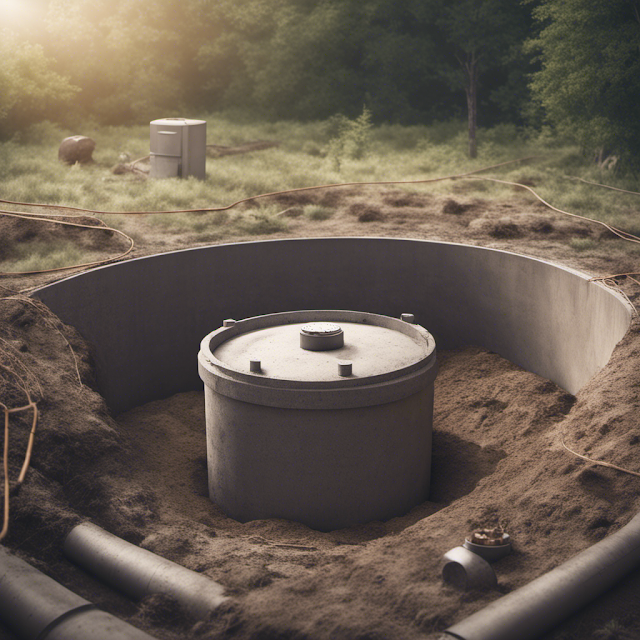Maximizing the Lifespan of Your Septic Tank: Essential Tips and Maintenance
 |
| Maximizing the Lifespan of Your Septic Tank: Essential Tips and Maintenance |
Are you worried about the lifespan of your septic tank? Wondering how to keep it running smoothly for years to come? Look no further.
This article will provide you with essential tips and maintenance techniques to maximize the lifespan of your septic tank. With proper care, septic tanks can last anywhere from 20 to 40 years or more.
By following these expert guidelines, you can ensure that your septic tank remains in excellent working condition, saving you time, money, and potential headaches down the line.
Key Takeaways
- Choose the right tank material based on soil testing and install the tank deep enough to avoid damage.
- Avoid flushing non-biodegradable products, food waste, and chemicals down the drain.
- Regularly pump out the septic tank every two to five years, depending on size and usage.
- Conduct inspections to identify any structural or deterioration problems.
Understanding Septic Tank Lifespan
Understanding the lifespan of a septic tank is crucial for homeowners to ensure proper maintenance and avoid costly repairs. Septic tank maintenance is necessary to prolong its lifespan, and several factors can affect how long it lasts.
The material of the tank plays a significant role, with concrete tanks lasting over 40 years, steel tanks lasting 15 to 20 years, and fiberglass/plastic tanks lasting 30 years or more.
Additionally, usage is another important factor, as septic tanks used by larger households may have a shorter lifespan. Regular maintenance, such as pumping and inspections, is essential to keep the septic tank in good working order.
The type of soil surrounding the tank and the groundwater conditions can also impact its longevity. By considering these factors and following proper maintenance practices, homeowners can maximize the lifespan of their septic tank and avoid expensive repairs.
Factors Influencing Septic Tank Longevity
Proper installation, regular pumping, and careful consideration of soil and groundwater conditions significantly impact the longevity of septic tanks.
When it comes to septic tank longevity, two important factors to consider are usage and maintenance.
Factors affecting septic tank longevity: Usage and maintenance.
Usage: The amount of usage a septic tank receives can greatly impact its lifespan. Septic tanks used by larger households or those with excessive water usage may have a shorter lifespan. It is important to be mindful of what goes down the drain and avoid flushing non-biodegradable products, food waste, and chemicals.
Maintenance: Regular maintenance is essential for maximizing the lifespan of a septic tank. This includes routine pumping every two to five years, depending on the size and usage of the tank. Periodic inspections should also be conducted to identify any structural or deterioration problems early on.
Choosing the Right Tank Material
Choosing the right tank material is crucial for ensuring the longevity of a septic system. Tank maintenance and choosing the right tank size are important considerations in this process.
Regular maintenance, such as pumping and inspections, is necessary to keep the septic tank in good working order. This helps prevent any potential issues and extends the lifespan of the tank.
Additionally, choosing the appropriate tank size is essential to accommodate the needs of the household. A tank that is too small may lead to frequent backups and overflows, while a tank that is too large may result in inefficient use of space and increased maintenance costs.
Therefore, it is important to carefully consider the size requirements and consult with professionals to select the right tank material and size for optimal performance and longevity.
Proper Usage for Extended Tank Life
To ensure an extended lifespan for the septic tank, homeowners must adhere to guidelines for proper usage. Here are three essential tips to follow:
Avoid excessive water usage: Excess water can overload the septic system, leading to potential issues like backups and clogs. To prevent this, homeowners should be mindful of their water consumption. Simple steps like fixing leaky faucets, using efficient appliances, and spreading out laundry loads can help reduce water usage.
Choose septic-safe products: Harsh chemicals and non-biodegradable items can harm the septic system's delicate balance of bacteria and enzymes. Homeowners should opt for septic-safe cleaning products, avoid flushing non-biodegradable materials down the toilet, and dispose of chemicals properly. Using natural alternatives and biodegradable products can help maintain a healthy septic system.
Following these tips will not only prolong the lifespan of the septic tank but also prevent costly repairs and ensure the system's efficient operation.
Importance of Regular Maintenance
Regular maintenance of the septic system is crucial in order to ensure its efficient operation and prevent costly repairs. Hiring professionals for septic tank maintenance offers several benefits. They have the knowledge and experience to properly inspect and pump the tank, ensuring it functions optimally and lasts longer. Professional maintenance also helps identify any potential issues early on, preventing major problems down the line.
On the other hand, there are common mistakes to avoid in septic tank maintenance. One of them is neglecting regular pumping. Septic tanks should be pumped every two to five years, depending on their size and usage. Failing to do so can lead to sewage backups and costly repairs. Another mistake is flushing non-biodegradable products, like wipes or feminine hygiene products, down the drain. These items can clog the system and cause damage. Finally, excessive water usage should be avoided as it can overload the system and shorten its lifespan.
The Role of Soil Type in Septic Tank Lifespan
The type of soil surrounding the septic tank greatly affects its longevity and overall performance. Understanding the relationship between soil type and septic system lifespan is crucial for maximizing the tank's lifespan.
The impact of soil composition on septic tank longevity:
Drainage: Soil with good drainage allows for proper absorption of wastewater, preventing saturation and potential damage to the tank. Sandy or loamy soils are ideal for septic systems as they allow water to flow freely.
Compaction: Compacted soils, such as clay or heavy clay, can hinder the movement of water, leading to poor drainage and potential backups. This can put a strain on the septic tank and decrease its lifespan.
Permeability: The permeability of the soil determines how well it can absorb and filter wastewater. Soils with high permeability, like sandy soils, are more suitable for septic systems as they facilitate the natural treatment of effluent.
Managing Groundwater to Extend Tank Life
Groundwater levels play a crucial role in the lifespan of septic tanks. When the water table is high, it can cause sewer backups and lead to premature tank failure.
To manage groundwater effectively and extend the tank's life, homeowners can take certain measures. One approach is to divert rainwater away from the drain field by installing gutters and downspouts, directing the water to areas that won't saturate the soil near the septic system.
Additionally, planting trees and shrubs with deep roots can help absorb excess moisture from the soil. Regular inspections of the tank and drain field are also essential to identify any potential issues early on.
Correct Installation Techniques for Longevity
To ensure a long-lasting septic system, homeowners should properly install the tank by choosing the right material and installing it at an appropriate depth. Here are three correct installation techniques to maximize the lifespan of your septic tank:
Choose the right material: Selecting a septic tank material that is suitable for your soil type is crucial. Concrete tanks are durable and can last over 40 years, while fiberglass/plastic tanks can last 30 years or more. Avoid steel tanks, as they have a shorter lifespan of 15 to 20 years.
Install at an appropriate depth: The septic tank should be installed at a depth that allows proper functioning and protection from freezing temperatures. It should be placed below the frost line and high groundwater levels to prevent damage.
Avoid common installation mistakes: Some common installation mistakes include inadequate tank sizing, improper tank placement, and failure to provide proper access for maintenance and inspections. Avoid these errors by consulting with a professional and following local regulations.
The Impact of Household Size on Tank Lifespan
Household size plays a significant role in the maintenance and lifespan of a septic tank. Larger households tend to produce more wastewater, which can put a strain on the system. The increased volume of water entering the tank can lead to more frequent pumping requirements and potential issues with the overall functionality of the septic system.
To manage excessive water usage and prolong the lifespan of the septic tank, it is essential for larger households to be mindful of their water consumption. Implementing water-saving practices such as fixing leaks, using low-flow fixtures, and practicing water conservation can help reduce the stress on the septic system.
Additionally, spreading out water usage throughout the day and avoiding excessive simultaneous usage can also help minimize the impact on the tank. By managing water usage effectively, homeowners can ensure the longevity and optimal performance of their septic tank system.
Signs of a Failing Septic Tank
Experiencing foul odors, slow drains, and sewage backups are common signs of a failing septic tank. These issues can arise when the septic tank is not functioning properly, leading to a buildup of waste and causing unpleasant symptoms.
To prevent septic tank failure and ensure its longevity, there are several preventive measures that can be taken:
Regular Pumping: Regularly pumping out the septic tank every 3 to 5 years, depending on its size and usage, helps prevent solid waste buildup and maintains the tank's efficiency.
Water Conservation: Avoid excessive water usage, such as long showers or running multiple appliances simultaneously, as it can overload the septic system and lead to failure.
Proper Waste Disposal: Only flush biodegradable products and septic-safe toilet paper. Avoid flushing chemicals, oil, grease, and non-biodegradable items down the drain, as they can clog the system.
Recommended Maintenance for a Healthy Septic System
Regular maintenance is crucial for maintaining a healthy septic system and maximizing the lifespan of your septic tank. By following recommended maintenance practices, you can prevent costly repairs and ensure the efficient functioning of your system.
It is generally recommended to have your septic tank pumped every three to five years, although this can vary depending on the size of your tank and the level of usage. Additionally, it is important to avoid excessive water usage, as this can overload the system.
Using septic-safe products is also highly recommended, as they are designed to be biodegradable and not harm the bacteria that break down waste in your tank.
Avoiding Costly Repairs Through Early Detection
Early detection is key in avoiding costly repairs for a septic system. By catching potential issues early on, homeowners can save money and prevent major damage to their septic tanks. Here are three benefits of early detection and cost-effective maintenance:
Prevents system failure: Regular inspections and pumping can identify problems before they escalate into full-blown system failure. This allows for timely repairs or adjustments, saving homeowners from the expensive and disruptive process of replacing a septic system.
Reduces repair costs: Addressing minor issues early on can prevent them from becoming larger and more expensive problems. Simple repairs, such as fixing leaks or replacing a faulty component, are generally more cost-effective than extensive repairs or replacements.
Extends tank lifespan: By promptly addressing issues and practicing proper maintenance, homeowners can maximize the lifespan of their septic tanks. This means fewer repairs and replacements over time, resulting in significant cost savings.
Early detection benefits and cost-effective maintenance go hand in hand when it comes to preserving the health and longevity of a septic system.
Maintaining Proper Landscaping and Drainage
Proper landscaping and drainage are crucial for the health and functionality of a septic system.
When it comes to maintaining a septic tank, preventing root intrusion and managing excess moisture are key factors to consider.
Tree roots have the potential to infiltrate septic systems, causing damage and blockages. To prevent root intrusion, it is important to plant trees and shrubs at a safe distance from the septic system and regularly monitor the area for any signs of root growth.
Additionally, managing excess moisture is essential to ensure the proper functioning of the septic system. Excessive water can overload the system and lead to backups and failures.
Proper drainage techniques, such as installing gutters and downspouts away from the septic system, can help divert excess water and protect the system's integrity.
Frequently Asked Questions
Can I Use a Septic Tank Indefinitely Without Any Maintenance?
No, a septic tank cannot be used indefinitely without any maintenance. Regular septic tank maintenance is essential for its long-term care and proper functioning. Neglecting maintenance can lead to costly repairs and a shorter lifespan.
Is It Necessary to Pump the Septic Tank Every Two to Five Years Even if It Seems to Be Functioning Properly?
Pumping the septic tank every two to five years is necessary, even if it seems to be functioning properly. This regular maintenance ensures efficient operation and prevents costly repairs. Alternative maintenance methods are not as effective.
How Can I Determine the Appropriate Tank Material for My Septic System?
To determine the appropriate tank material for a septic system, consider factors such as soil testing and the expected lifespan of different materials. Concrete tanks are durable but may require more maintenance, while fiberglass/plastic tanks offer longevity and ease of installation.
What Are the Signs of a Failing Septic Tank That I Should Look Out For?
Warning signs of septic tank failure include slow draining sinks, toilets, and showers, foul odors, sewage backups, and lush patches of grass over the drain field. Regular inspection and maintenance can prevent costly repairs.
How Can Proper Landscaping and Drainage Impact the Lifespan of My Septic Tank?
Proper landscaping and drainage play a crucial role in maximizing the lifespan of a septic tank. By directing water away from the tank and ensuring proper soil absorption, potential issues like backups and structural damage can be minimized.



.png)






Comments
Post a Comment